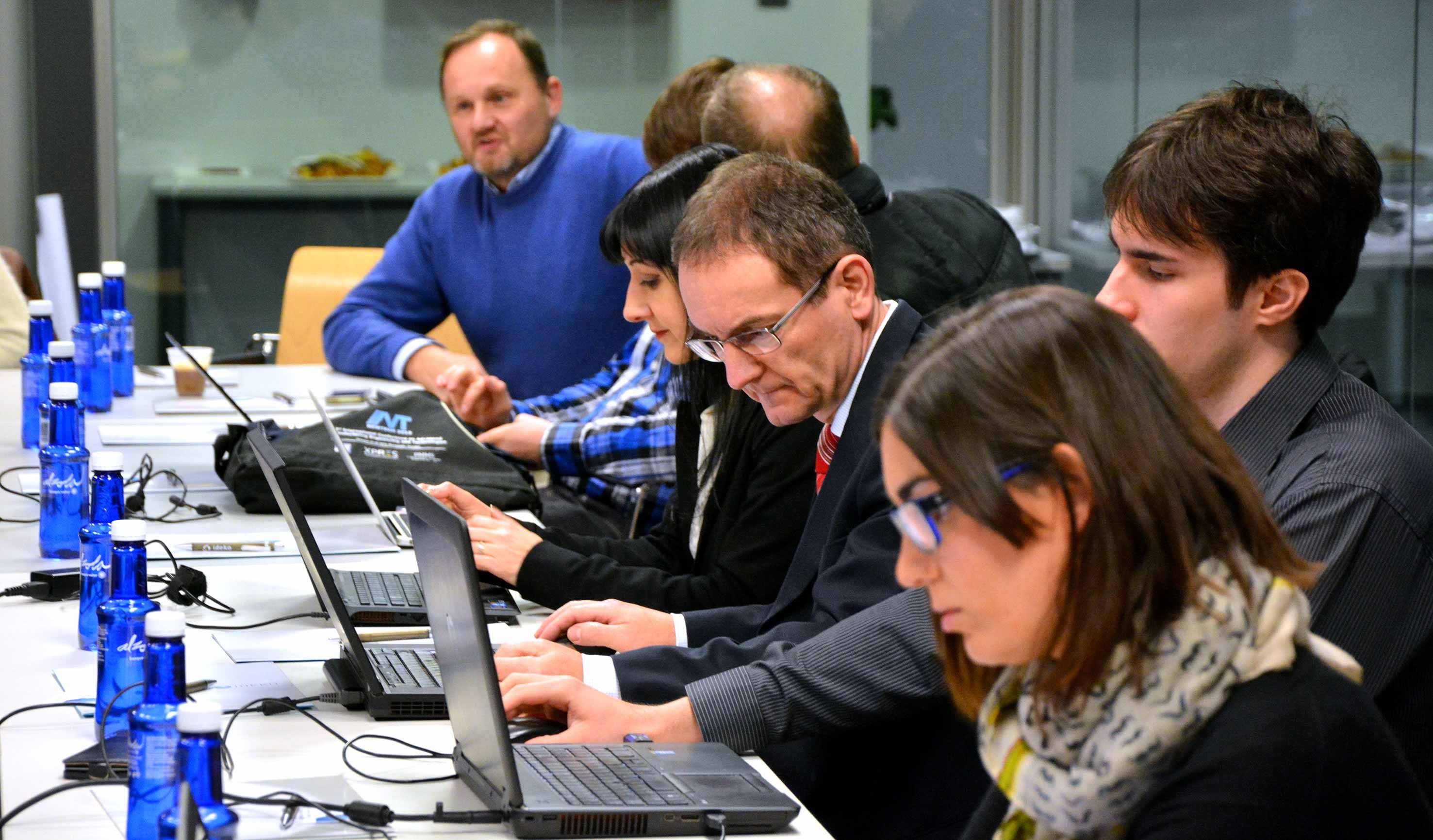Last news about IDEKO.

The IK4-IDEKO technology centre is taking part in a European project that includes augmented reality and virtual reality for repairing manufacturing systems
The project members, with a 4.43 M€ budget, are meeting today in Elgoibar to assess the progress made and decide on future lines of work.
To improve the efficiency of machinery maintenance processes, increase the useful life cycle of its components and reduce production downtimes in order to save on costs. These are the main objectives of the EASE-R3 European project that seeks to design innovative strategies and introduce new technologies into the repair, renovation and reuse of manufacturing systems.
The IK4-IDEKO technology centre, which forms part of the project that is developing this new integrated system for the maintenance and reuse of machine tools, is today home, at its headquarters in Elgoibar, to the 14 members of the consortium who are assessing the progress made and designing future lines of work.
Currently, machine tool maintenance mechanisms are preventive, based on periodic inspections and experience acquired over the useful life of the components in a similar way to services carried out on vehicles.
One of the main objectives of the EASE-R3 project, which has a budget of 4.43 million euros, comprises monitoring and collecting data on the performance of the machine tool components in order to predict their life cycle, better plan production downtimes for maintenance and reduce costs.
Machine tools are used to manufacture high added value components, therefore reducing inactivity times and increasing the life cycle of their components are key elements for increasing profitability in manufacturing processes.
IK4-IDEKO's contribution
In this context, the IK4-IDEKO centre, the benchmark in the Basque country in the Advanced Manufacturing field, is working on the development of technologies that will allow the processing of data on the evolution of the components and parts of this equipment in order to calculate their useful life and to determine the most suitable maintenance type.
"The predictive maintenance model allows us to go into much more detail", explained the IK4-IDEKO researcher, Aitor Fernández.
In his opinion, one of the main achievements of the project will be the capability to determine which type of maintenance system - preventive, predictive or Run to Failure - is the most suitable for each component depending on variables such as the ease with which they can be replaced or the time necessary for their new installation.
"The manufacturer takes control of his machine. He achieves greater return on his investment. Downtimes can be better planned", he added.
In addition to monitoring component performance, the technology centre also takes part in the development of virtual reality tools that assist in decision-making on dismantling, recycling or reuse when the life cycle of the machinery comes to an end.
Within the project framework, the IK4-IDEKO researchers will work on three different lines of research that include strategic innovation, intelligent software and dynamics and control.
It is envisaged that the members of the consortium will meet today at the IK4-IDEKO facilities in order to share the progress made since the start of the project.
The initiative, led by the Italian machinery manufacturer Fidia and started in 2013, has finance of 4.43 million euros available from the European Commission's Seventh Framework Programme, and will conclude in 2016.
About IK4-IDEKO
IK4-IDEKO is a technology centre with its headquarters in Elgoibar, Gipuzkoa that specialises in manufacturing and industrial production technologies. It was created in 1986 to respond to the high technological content challenges of machine tool companies, today it has more than 100 researchers, a portfolio of more than 50 customers a year and 9 business partners, among which are DANOBATGROUP companies, Mondragon Corporation, Zeiss and Rofin.
Its R&D&I activity is aimed at offering differentiating technological solutions to companies in order to increase their competitiveness, and it is grouped around eight research lines: Strategic Innovation, Machining and Production systems, Dynamics and Control, Mechanical Design, Intelligent Software, Manufacturing Processes, Inspection and Measurement and Microtechnology and Ultra-precision.